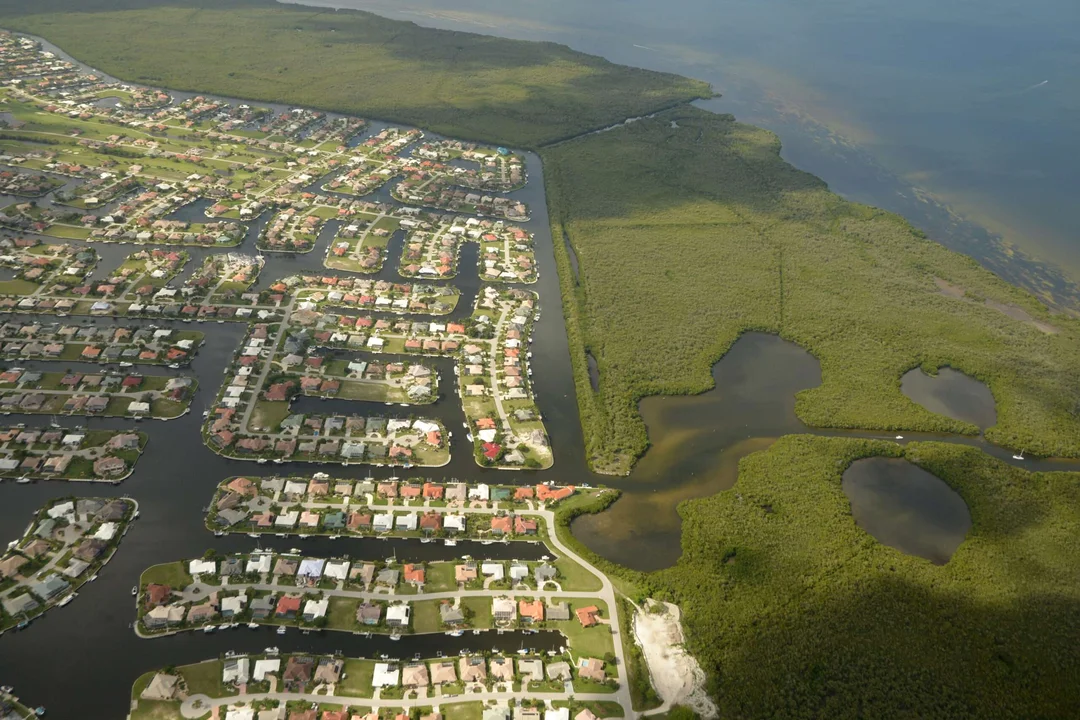
Is Florida’s Housing Dream Turning into a Nightmare?
Florida's once-bustling housing market is showing alarming signs of distress, with home prices plummeting and experts drawing parallels to the 2008 financial crash. This shift raises critical questions about affordability, migration trends, and the state's economic future, potentially impacting millions of residents and investors.
Recent data reveals a stark downturn in Florida's real estate sector. According to Redfin Corp., the median home price in areas like Palm Beach dropped 1.7% in March compared to the previous year, marking the steepest decline in at least 13 years. This fall is part of a broader trend where supply outpaces demand. Real estate analyst Nick Gerli, CEO of Reventure, warns that Florida now boasts an unprecedented 177,000 homes for sale—far exceeding the Northeast U.S.'s record-low 79,000 listings. Gerli attributes this excess to an 80% drop in migration to the state since the pandemic peak, leaving a glut of properties with few buyers.
In Southwest Florida, the situation is even more challenging for sellers. Cindy Marsh-Tichy, president of the Realtors of Punta Gorda, Port Charlotte, North Port, and DeSoto, describes it as a clear buyer's market, with homes lingering on the market longer than before. For instance, Rodney Weng has struggled to sell his Punta Gorda home for over two and a half years, despite slashing the price by $79,000 and investing in upgrades like a new roof and AC unit. "I expected it to sell in six months, but everything just dropped off," Weng shared, highlighting the frustration many face. Profit margins in the area have plummeted, with Punta Gorda's margins falling from 106.3% to 69.2% in the first quarter of 2025 alone.

Gerli's analysis goes deeper, comparing the current scenario to the 2008 housing bubble. He points out that local buyers in Florida are now spending 39% of their income on mortgages and taxes—the highest since 2006-07—making homes unaffordable for many. "Florida's housing market is in a downturn. Prices are dropping across the state and will likely continue due to oversupply and lack of affordability," Gerli stated on X. While factors like high HOA fees and insurance costs are often blamed, Gerli argues that declining migration is the core issue, potentially leading to a multi-year correction. In contrast, regions like New York are seeing price increases, underscoring Florida's unique vulnerability.
This downturn not only affects sellers but also raises broader economic concerns. With buyers turning cautious—opting for mortgages over cash purchases amid uncertainties like potential tariffs—the market's recovery hinges on significant price drops to lure new residents. Experts like Marsh-Tichy note that sellers who bought at the market's peak may face substantial losses, prolonging the pain.
In summary, Florida's housing woes signal a potential shift from boom to bust, with falling prices and reduced demand creating ripple effects across the economy. Will cheaper homes bring buyers back, or is this the start of a prolonged decline? Share your thoughts and experiences in the comments below—how might this impact you or your community?